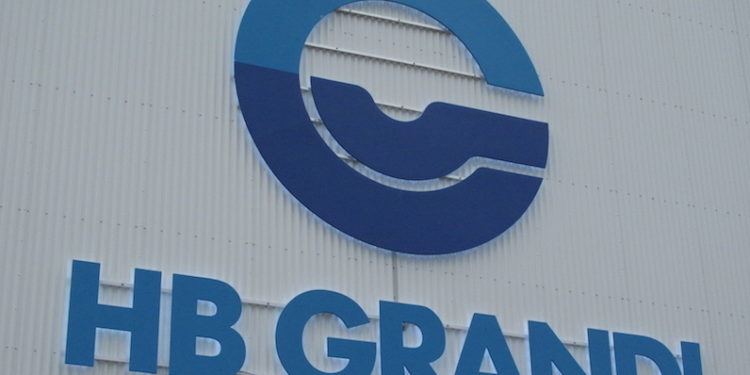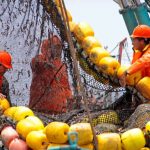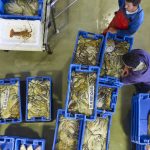Plans announced by Icelandic fishing and processing company to close its groundfish production at Akranes have come in for sharp criticism in the media.
The company announced earlier this week that it is in talks with unions and aims to end groundfish processing at its Akranes location, merging this side of its activities with production in Reykjavík – effectively transferring groundfish production to its Reykjavík factory.
HB Grandi has 270 staff at Akranes, of whom 93 work in the groundfish division and whose jobs are thought to be at risk. In addition, the company has vessel services, some of its pelagic production and subsidiary companies Norðanfiskur and Vignir G Jónsson located in Akranes, all which HB Grandi says it intends to expand, while stating that port does not have the required facilities for its groundfish landings.
Emergency meetings have been held in Akranes with MPs and union representatives.
Around half of HB Grandi’s groundfish quotas came to the company in 2004 when Reykjavík company Grandi merged with Akranes company Haraldur Böðvarsson to form the HB Grandi grouping with locations on both sides of Faxaflói Bay.
The debate has been sharpened when SFS director Heiðrún Lind Marteinsdóttir commented in a TV interview that with the difficult position faced by fishing companies due to unfavourable exchange rates, the options are there for Icelandic processors to shift their production operations to Britain, Eastern Europe or Asia.
She said that there are companies in other countries that are capable of providing full production of raw material from Iceland, making it an option that companies are considering.
Heiðrún Lind Marteinsdóttir warned that there are companies that may not survive the present period of the Icelandic króna’s strength against other currencies, adding that the pound has fallen by 25-30% against the króna and the Euro has dropped by 15-18%. She commented on the HB Grandi situation in particular, saying that the company’s Akranes operation is run at a loss and the prospects for groundfish processing have not been as poor as they are today for the past decade.









